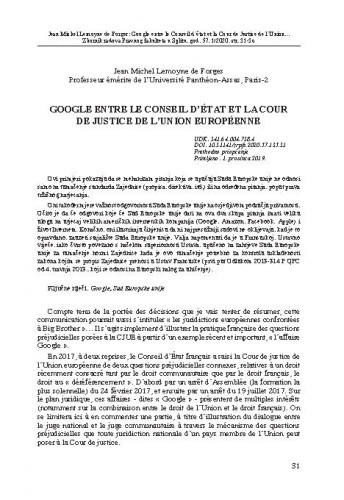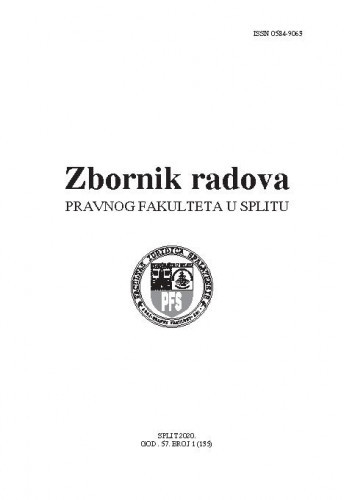Ovi primjeri pokazuju da se mehanizam pitanja koja se upućuju Sudu Europske unije ne odnosi samo na tumačenje standarda Zajednice (propisa, direktiva, itd.) ili na određena pitanja, poput prava tržišnog natjecanja.Oni također mjere važnost odgovornosti Suda Europske unije na osjetljivom području privatnosti. Očito je da će odgovori koje će Sud Europske unije dati na ova dva skupa pitanja imati veliku ulogu na utjecaj velikih američkih internetskih kompanija (Google, Amazon, Facebook, Apple) i život Interneta. Konačno, oni ilustriraju činjenicu da ni najprestižniji sudovi ne oklijevaju, kad je to opravdano, zauzeti stajalište Suda Europske unije. Valja napomenuti da je u Francuskoj, Ustavno vijeće, iako čvrsto povezano s načelom superiornosti Ustava, upućeno na zahtjeve Suda Europske unije za tumačenje normi Zajednice kada je ovo tumačenje potrebno za kontrolu usklađenosti zakona kojim se propis Zajednice prenosi u Ustav Francuske (prvi put Odlukom 2013-314 P QPC od 4. travnja 2013., koji se odnosi na Europski nalog za uhićenje).; These examples demonstrate that the mechanism of questions directed at Europske Union Courts is not only related to interpreting Community Standards (regulations, directives, etc.) or to certain issues such as market competition law.They also measure the importance of the European Union Court in the sensitive area of privacy. It is obvious that the answers the European Union Court will give to these two groups of questions will play a major role in the impact of large American Internet companies (Google, Amazon, Facebook, and Apple) and life on the Internet. Finally, they illustrate the fact that the most prestigious courts do not hesitate, where necessary, to take the stance of the European Union Court. It must be mentioned that in France, the Constitutional Council, although firmly linked to the principle of Constitutional superiority, is directed to European Court demands for interpreting Community norms where this interpretation is necessary for controlling the harmonisation of laws by which Community regulations are transferred into the French Constitution (first time by decision 2013-314 P QPC of 4 April 2013 related to the European arrest warrant).
Sažetak

 Zbornik radova Pravnog fakulteta u Splitu : 57, 1(2020) / glavni i odgovorni urednik Arsen Bačić.
Zbornik radova Pravnog fakulteta u Splitu : 57, 1(2020) / glavni i odgovorni urednik Arsen Bačić.